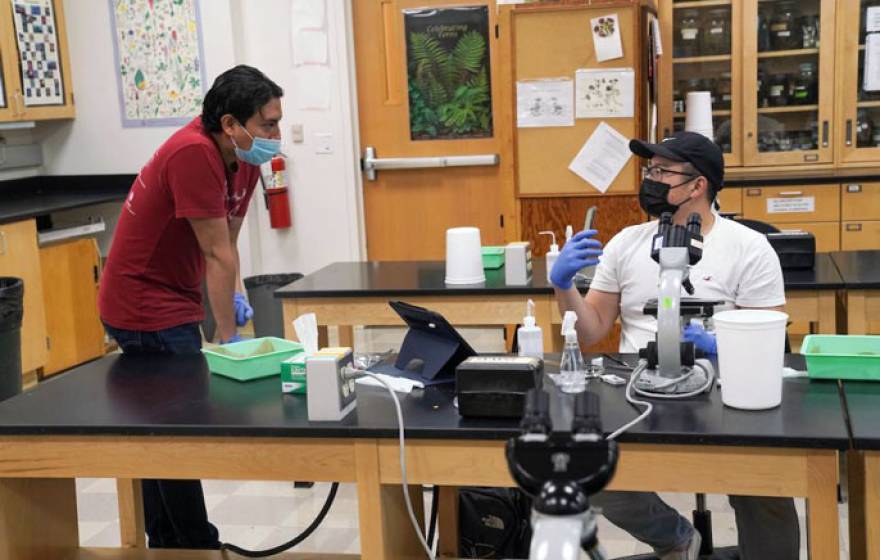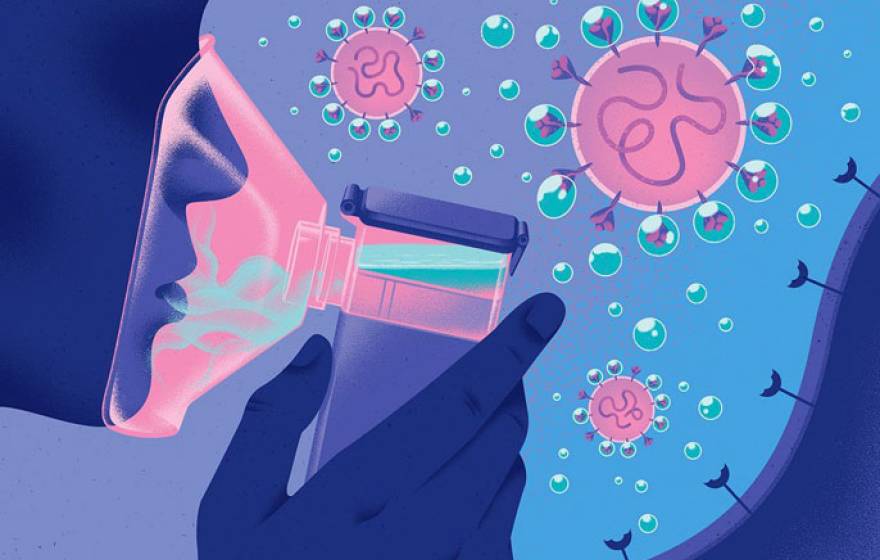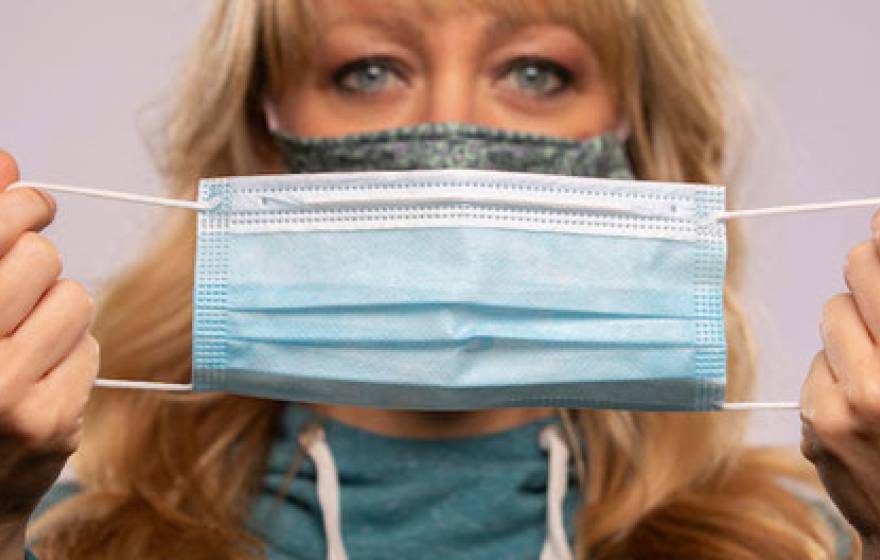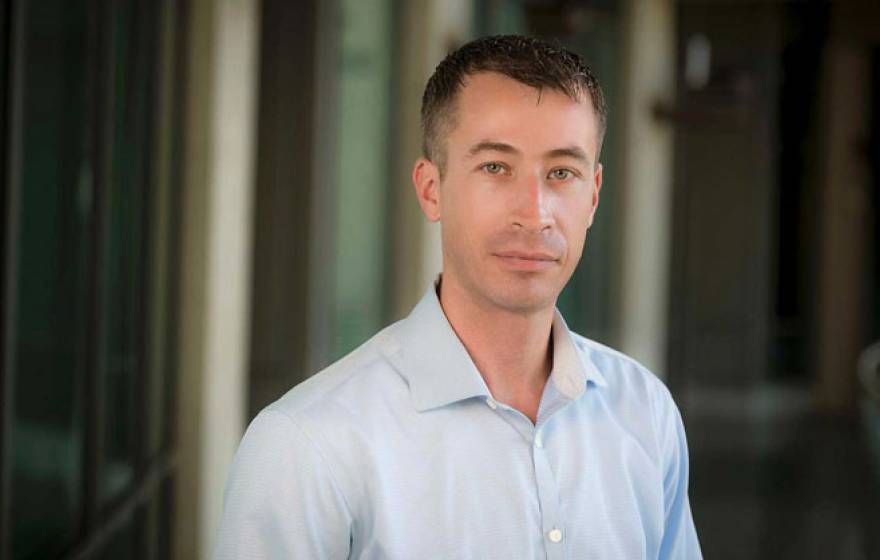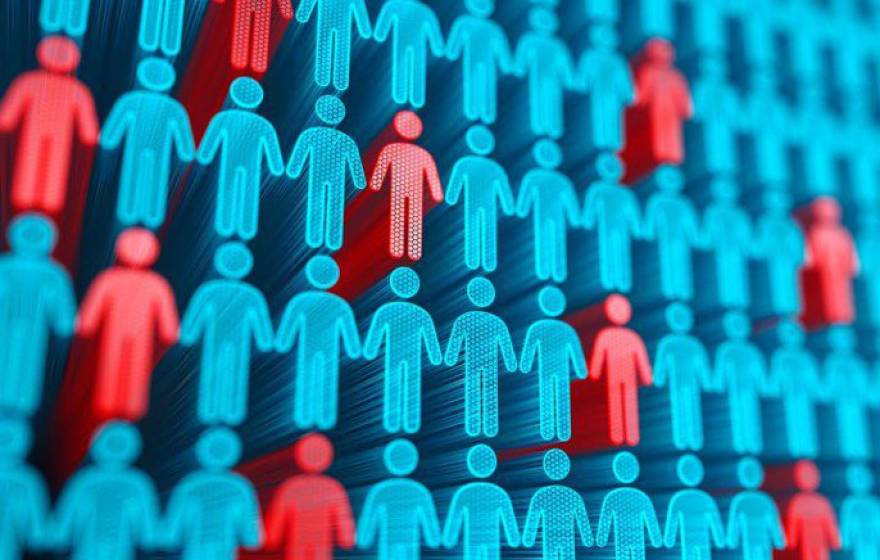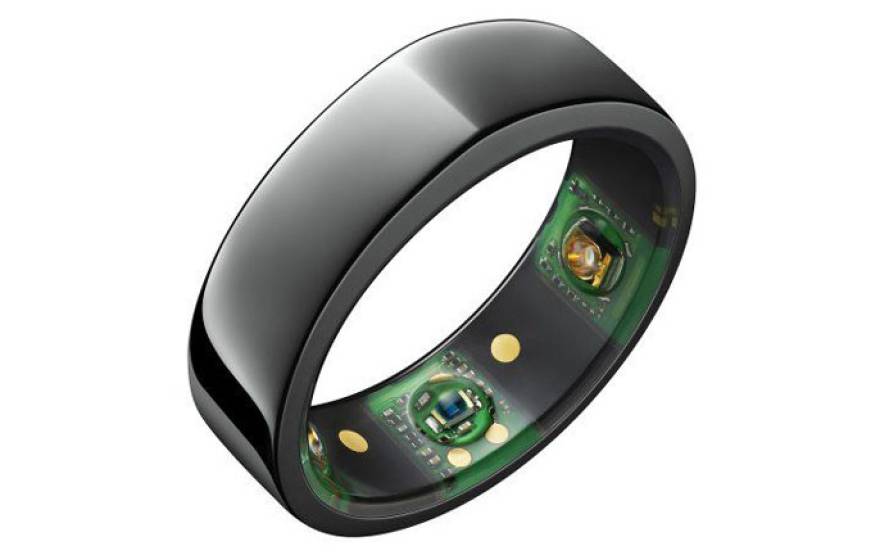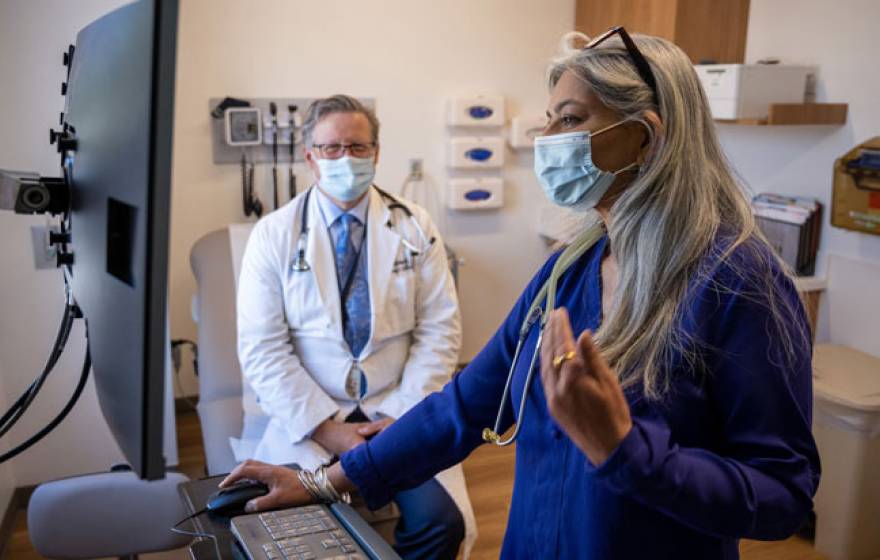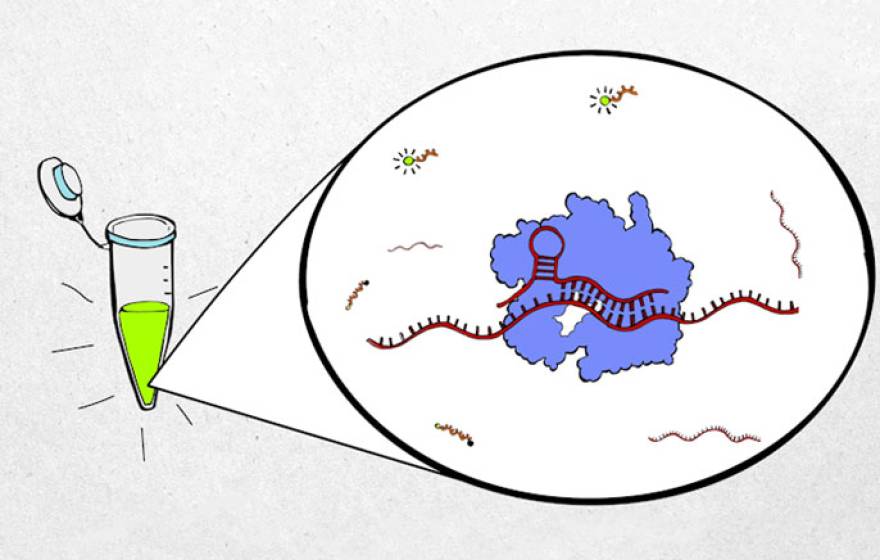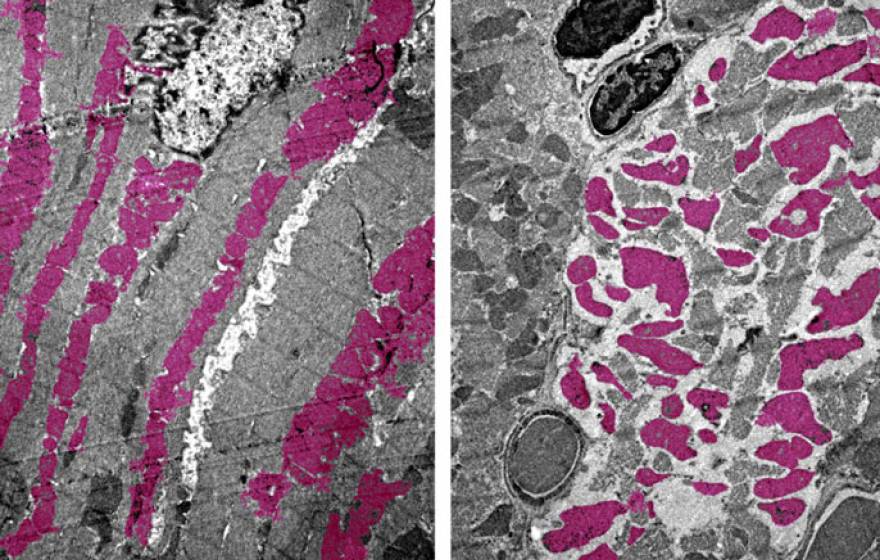But a pair of UC Riverside studies finds that kids and pets don't offset isolation from social distancing, nor do video chats.
Partners help us feel more connected during pandemic
How we're adapting to wearing masks
People are adapting to speaking and listening in our masked world, with some unexpected perks, a study shows.
A UCSF team has engineered a tiny antibody capable of neutralizing the coronavirus
Called a nanobody, this treament could be taken by someone with COVID-19 to reduce their viral load immediately.
A California university tries to shield an entire city from coronavirus
UC Davis is providing free testing, masks and quarantine housing to tens of thousands of people who live nearby.
Should we be double masking?
Epidemiologist Brandon Brown answers this and other new COVID-19 questions.
Making masks smarter and safer against COVID-19
Researchers are developing a color-changing test strip to detect SARS-CoV-2 in a mask wearer’s breath or saliva.
How worried should you be about the new coronavirus variant?
UCSF infectious disease expert Charles Chiu on how the new variant emerged, whether available vaccines will still work and what we need to do now.
Wearable sensor may signal you’re developing COVID-19 — even if your symptoms are subtle
A ‘smart’ ring may flag early illnesses, a UCSF and UC San Diego study shows.
The frightening uncertainty of long-haul COVID-19
UC Davis Health recently launched the region’s first Post-COVID-19 Clinic to give care and counsel to the most long-suffering patients.
UCLA nursing professor shares her experience as a subject in COVID-19 vaccine trial
Kristen Choi says it is important for doctors and nurses to discuss side effects with patients and reassure them about the vaccine’s safety.
New CRISPR-based COVID-19 test uses smartphone cameras to spot virus RNA
The low-cost diagnostic tool can provide accurate results in under 30 minutes and is simple enough to be made available in the home.
Scientists discover how COVID-19 virus causes multiple organ failure in mice
Researchers study the disease’s systemic effects in the heart, kidneys, spleen and other organs.

